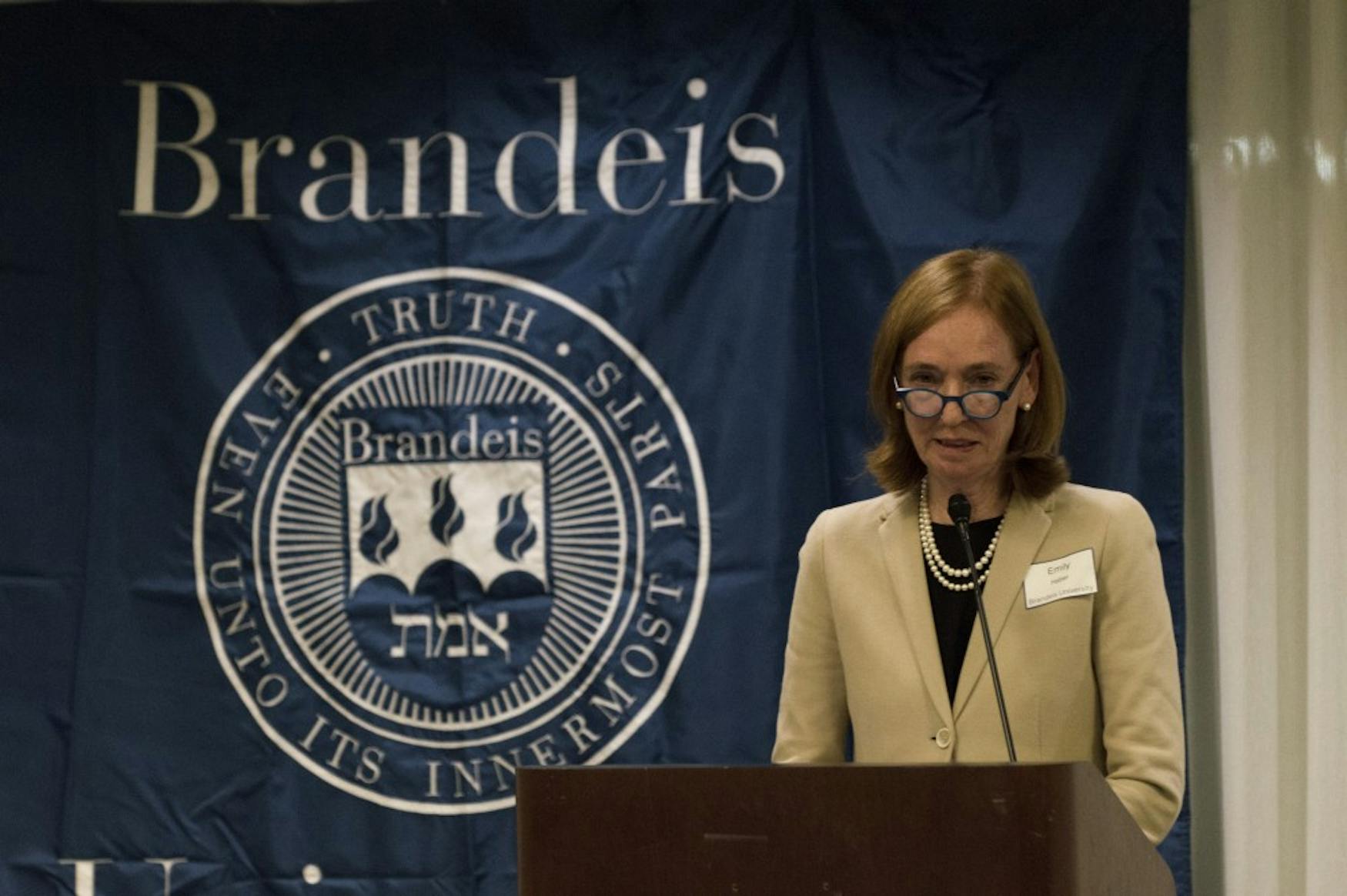CGES hosts ambassador
On the first night of a two-day event celebrating the Center for German and European Studies’ 20th anniversary, members of the Brandeis community gathered to hear German Ambassador Emily Haber discuss the importance of the continued communication and allyship between the United States and Europe in the aftermath of World War II.
Haber was appointed as German ambassador to the U.S. in June 2018. Her keynote address, “Reflecting on the Past, Envisioning the Future,” focused on the importance of learning from history and began by discussing the histories of Germany, Israel and America.
University President Ron Liebowitz opened the event by explaining that “the lessons learned from Germany and Europe can help build a more tolerant future.”
Haber reflected on the shared histories by saying, “The different vantage points that Germany, the U.S. and Israel [have] must make sure that our joined history won't fade away.” Here, Haber referred to the countries’ involvement World War II and said she hopes that we each take strides to learn from the past to build a more connected future.
She believes that the history that connects these countries is the point upon which each country can create a secure future through building a stronger and more unified political and social understanding with each other. She explained that although relationships between these countries are “constantly undergoing change,” there “must be a joint understanding of where we want to go and which challenges can block us from reaching that goal.”
This method of thinking, Haber argued, requires us to ask ourselves what the dangers are of achieving a transatlantic partnership, referencing modern issues such as “Russian cyber attacks” and the “consequences of emerging terrorism,” and what we can do to prevent them. She explained that only through examining this forward-thinking approach can we find that our countries are “aligned in wanting to defend ourselves and maintaining how we want to live.”
Furthermore, Haber explained that in order to effectively utilize our history to improve the future, “we must be honest” about our actions and confront and learn from our differences and our histories. As different as we are, Haber said of these nations, we have to act together in order to unify and strengthen ourselves based on our countries’ common interests. The necessity of having international relationships helps the U.S. connect with other countries based on our core values which “far outweigh the differences” between the nations, she continued.
In her closing, Haber explained the “vision of transatlanticism”: the belief that the U.S. and European countries “need new inspiration from the younger generation” so they can confront new challenges together, defend their ways of life and inspire others to build similar relationships.
After the keynote address, Prof. Sabine von Mering (GER), director of CGES, and Sonja Lahnstein-Kandel, a key advocate and promoter of civil rights and tolerance in Germany and a partner of the University of Haifa, were introduced for a conversation regarding anti-Semitism and modern right-wing populism.
When asked about the factors responsible for the recent surge of anti-Semitism in Germany, Lahnstein-Kandel explained that though Germany has strict anti-Semitism laws, right-wing populism is still rising. When asked what factors contributed to this trend, she explained that this movement is driven by factors including “the question of immigrants, the issue of Israel and how the policy in Germany is perceived,” leading to what she sees as “the breaking of taboos through the right-wing populist party.”
Connecting to this, Lahnstein-Kandel was asked about the Trump administration's right wing rhetoric that seems to contradict its support of Israel. She explained that although “U.S. policy has always been friendly to Israel” economically, the current administration’s “racist ideology is still racist.” Lahnstein-Kandel pushed back against this dynamic by stressing the fact that “developing [social and economic] projects together” helps improve our countries and develop our international relationships.



Please note All comments are eligible for publication in The Justice.